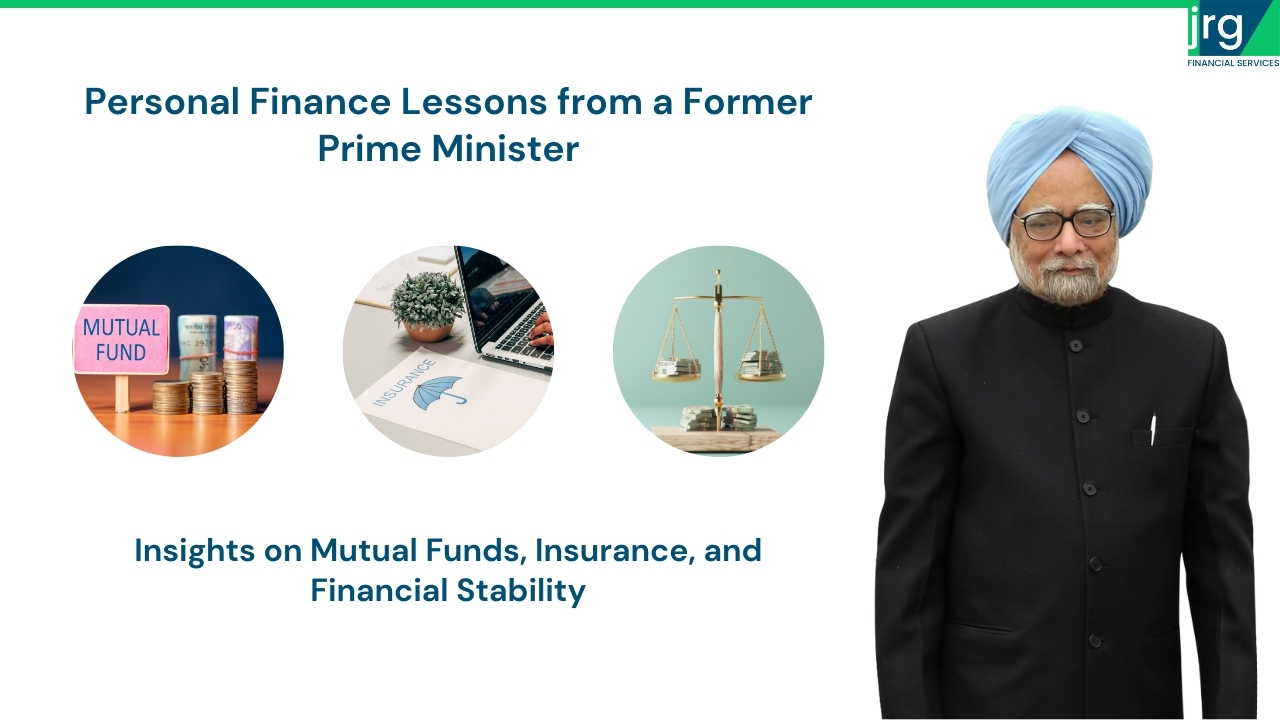The financial tenets of prominent figures, such as former prime ministers, can provide timeless guidance on personal finance. These leaders frequently have to balance budgets, manage national resources, and maintain long-term stability—all of which can teach us important lessons about personal financial management. Former Prime Minister Manmohan Singh is one such individual whose method of making financial decisions appeals to a lot of people. Known for his growth-oriented policies and economic reforms, his leadership in India has taught people how to manage their personal finances as well as how to govern. Salaried people can make well-informed decisions that promote long-term financial health by applying these concepts to mutual funds, insurance, and financial stability.
Key Insights on Mutual Funds, Insurance, and Financial Stability
Mutual Funds – Strategic and Long-Term Thinking

- Lesson: One of the most important lessons learned from Manmohan Singh’s tenure is the value of patience and smart thought. The Indian economy changed to a more market-driven strategy during his tenure, emphasizing long-term prosperity. Likewise, investing in mutual funds necessitates a long-term, patient perspective, resisting the urge to act on impulses based on transient market swings.
- Application: Salaried people can benefit from market growth over time and lessen the impact of short-term volatility by participating in mutual funds through SIPs (Systematic Investment Plans). The concepts of balancing risk and reward are in line with a diversified strategy that emphasizes a combination of debt, equity, and hybrid funds.
Insurance – Protecting Against the Unexpected

- Lesson: A crucial aspect of financial planning emphasized during the tenure of Prime Minister Singh was the importance of safeguarding against unexpected risks. Just as the Indian government worked towards economic security through policy-making and reforms, individuals must ensure their own financial security through insurance.
- Application: Life and health insurance policies are essential tools in mitigating financial risks. By investing in comprehensive health coverage and life insurance, salaried employees can protect themselves and their families from unforeseen health emergencies or life events. The concept of risk management is vital for anyone looking to secure their financial future.
Financial Stability – Building a Strong Foundation

- Lesson: Singh’s approach to economic policy often focused on building a strong and stable economic foundation. Similarly, individuals must first ensure their financial base is secure before taking on more risks. This involves creating a robust emergency fund, maintaining a healthy debt-to-income ratio, and ensuring a balance between saving and spending.
- Application: Consistent savings and sound budgeting are the first steps toward financial stability. A safety net can be established by avoiding needless debt, diversifying your investment portfolio, and setting aside a percentage of your income for emergencies. This guarantees that salaried workers will be able to withstand any unforeseen difficulties.
Conclusion: Drawing Inspiration for Personal Financial Success
Salary employees’ personal financial decisions can be influenced by the sound financial advice of a former prime minister such as Manmohan Singh. His emphasis on long-term planning, risk mitigation, and creating a strong basis for expansion offers insights that are equally relevant to personal finance and national governance. Salaried people can consciously move toward financial independence by adopting these ideas. The principles of prudent financial planning can open the door to a safe and prosperous future, whether through prudent mutual fund investments, obtaining sufficient insurance, or preserving financial stability.



